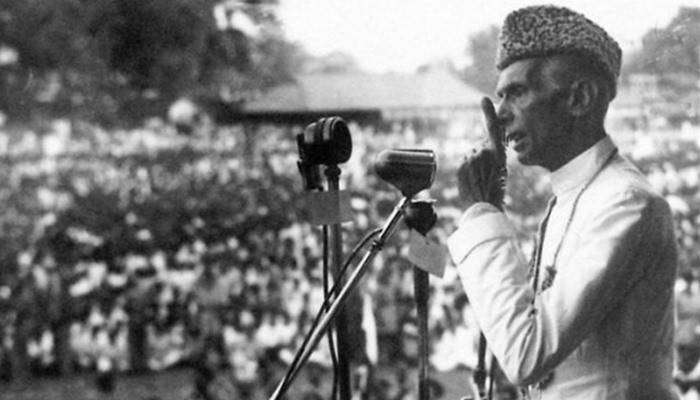The Life and Legacy of Quaid-e-Azam: Exploring His Impact on Pakistan’s History and Leadership
Quaid-e-Azam, a pivotal figure in the history of Pakistan, is celebrated for his monumental role in the creation of the nation. His leadership, vision, and dedication to the cause of independence have left an enduring legacy. This comprehensive guide delves into Quaid-e-Azam’s biography, his historical achievements, and his influential leadership, offering insights into his profound impact on Pakistan’s history.
Biography and Life of Quaid-e-Azam
Early Life and Family Background
Quaid-e-Azam, born Mohammad Ali Jinnah on December 25, 1876, in Karachi, was the eldest of seven children. His father, Jinnahbhai Poonja, was a prosperous merchant, and his mother, Mithibai, instilled in him a strong sense of duty and responsibility. The family’s commitment to education and hard work played a crucial role in shaping Jinnah’s future.
Education and Early Career
Jinnah’s early education took place in Karachi and Bombay (now Mumbai). At the age of 16, he traveled to London to study law at Lincoln’s Inn, becoming the youngest Indian to be called to the bar in England. Upon his return to India, Jinnah began his legal career in Bombay, quickly earning a reputation as a skilled lawyer.
Quaid-e-Azam’s Role in the Independence Movement
Jinnah’s political journey began with his involvement in the Indian National Congress, where he initially worked towards Hindu-Muslim unity. However, as communal tensions rose, he became disillusioned with Congress’s policies. In 1913, Jinnah joined the All India Muslim League and became a strong advocate for the rights of Muslims in India.
His vision for an independent Muslim state crystallized in the 1940 Lahore Resolution, which called for the creation of Pakistan. Jinnah’s leadership and unwavering commitment to this cause earned him the title “Quaid-e-Azam” (Great Leader).
Quaid-e-Azam’s Death
Quaid-e-Azam’s tireless efforts took a toll on his health. He was diagnosed with tuberculosis, which he kept secret to avoid jeopardizing the independence movement. Sadly, he passed away on September 11, 1948, just over a year after the creation of Pakistan. His death was a significant loss for the newly-formed nation.
Historical Impact and Achievements of Quaid-e-Azam
Contributions to the Independence Movement
Quaid-e-Azam’s contributions to the independence movement were monumental. He was instrumental in articulating the demand for a separate Muslim state and mobilizing support for the cause. His negotiation skills, strategic thinking, and ability to inspire the masses were crucial in achieving Pakistan’s independence on August 14, 1947.
Establishing Pakistan
Quaid-e-Azam’s vision for Pakistan was of a democratic, inclusive, and progressive nation. As the first Governor-General of Pakistan, he laid the foundations for the country’s governance and legal systems. His emphasis on unity, faith, and discipline continues to resonate with Pakistanis today.
Analysis of Quaid-e-Azam’s Historical Significance
Quaid-e-Azam’s historical significance extends beyond the borders of Pakistan. He is remembered as a leader who fought for the rights of an oppressed community and successfully established a nation based on principles of justice and equality. His legacy serves as a beacon of hope and resilience.
Leadership and Influence of Quaid-e-Azam
Quaid-e-Azam’s Leadership Qualities
Quaid-e-Azam’s leadership was marked by his integrity, determination, and unwavering commitment to his principles. He was a visionary who could foresee the potential of an independent Muslim state and worked tirelessly to make it a reality. His ability to unite diverse groups under a common cause was a testament to his exceptional leadership skills.
Notable Quotes by Quaid-e-Azam
Quaid-e-Azam’s speeches and quotes reflect his deep understanding of politics, society, and human nature. Some of his notable quotes include:
- “With faith, discipline, and selfless devotion to duty, there is nothing worthwhile that you cannot achieve.”
- “Think a hundred times before you take a decision, but once that decision is taken, stand by it as one man.”
- “We are now all Pakistanis—not Baluchis, Pathans, Sindhis, Bengalis, Punjabis, and so on—and as Pakistanis, we must feel, behave and act, and we should be proud to be known as Pakistanis and nothing else.”
These quotes highlight his belief in unity, perseverance, and national identity.
Quaid-e-Azam’s Influence on Modern Pakistan
Quaid-e-Azam’s influence on modern Pakistan is profound. His vision for a democratic and inclusive Pakistan continues to inspire leaders and citizens alike. The principles he espoused—justice, equality, and religious freedom—remain central to Pakistan’s national ethos.
Quaid-e-Azam’s life and legacy are integral to understanding the history and identity of Pakistan. His biography, filled with remarkable achievements and unwavering dedication to the cause of independence, serves as an inspiration to all. Quaid-e-Azam’s leadership, marked by integrity and vision, has left an indelible mark on Pakistan and the world.
For more detailed insights into historical figures like Quaid-e-Azam, visit Regent Studies. To further explore his impact and contributions, consider reputable sources like History.com.
Understanding Quaid-e-Azam’s multifaceted life allows us to appreciate his complex character and the profound impact he had on the world. Whether delving into his biography, analyzing his historical achievements, or exploring his enduring legacy, Quaid-e-Azam’s story offers a rich tapestry of leadership, resilience, and vision.




